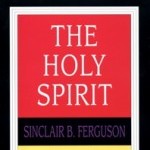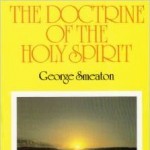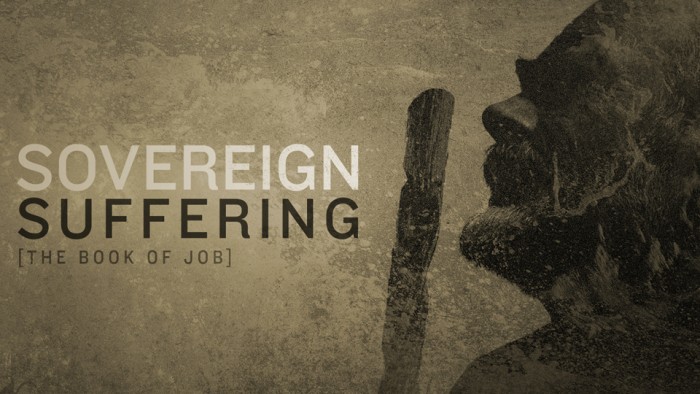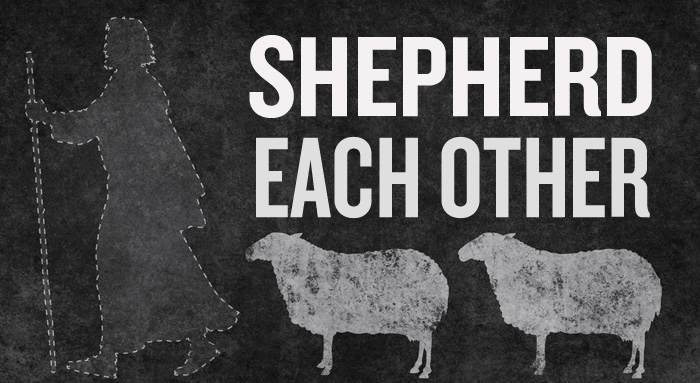The preacher’s mission is to lay hold of perishing men, and by the love of the Redeemer drag them from the pit.
Know the Sheep
What is the most undervalued aspect of faithful shepherding? What is that key essential to rightly leading the flock that it seems we are so prone to miss?
Take the helpful shepherding matrix from Tim Witmer’s masterpiece The Shepherd Leader: Shepherds know, feed, lead, and protect. Which of those four elements are you most likely to neglect?
I think it is no stretch to say if the average elder body is weak anywhere it’s on the issue of knowing the flock. Few elders need to be convinced of the necessity of teaching and overseeing the congregation, but I wonder how many actually labor to increasingly know their sheep.
JUST LIKE THE GOOD SHEPHERD
Every elder of a local church is an under-shepherd of the True Shepherd. Our shepherding is supposed to be a humble reflection of His perfect pattern, which includes a deep, intimate knowledge of the sheep. In John 10:14-15 Jesus says, “I am the good shepherd. I know my own and my own know me, just as the Father knows me and I know the Father.”
Do you know your sheep?
Everything depends on a growing knowledge of our sheep. It’s why Witmer says, “The most basic responsibility of a shepherd is to know his sheep.” Shepherds who know their sheep well are the ones best equipped to wisely lead their congregation on all kinds of matters: What book of the Bible should we study next? What applications does our church need to hear from this text? What issue of discipleship do we need to address? How are we doing in evangelism? Is there a sense of disunity that is growing unchecked? Are we unified on our stewardship of God’s resources?
We can’t lead ’em if we don’t know ’em.
PICK UP THE PHONE
Let me offer one simple suggestion for elder bodies who want to better know their sheep: give ’em a call.
Witmer wisely says, “While grand plans of ‘every member visitation’ should not be jettisoned without due consideration, it is crucial that an approach [for knowing the sheep] be embraced that is practical both for the elder and the member. One such approach is the use of the telephone. . . . Before shrugging off phone contact as the realm of telemarketers and political appeals, don’t underestimate the impact of a personal call from someone who has concern for your well-being at the forefront.”
I can absolutely affirm that final sentence. Whenever I call a church member to check in they almost invariably say, “I so thankful you took the time to call.” A few minutes on the phone go a long way to not only knowing your sheep, but building and perpetuating church unity.
A VERY GOOD PLACE TO START
Recognize that if you haven’t built a culture of “knowing” into your shepherding it might be a bit awkward for elder and church member at the beginning. But shepherding with knowledge is great gain.
If you don’t have one, create an up-to-date membership directory. It could be one that’s never printed off and resides in the ubiquitous Cloud, or maybe it’s one you print off and put in your Bible. It just needs to be current and contain pertinent contact information.
Then, in conjunction with your other elders, take some sub-section of the covenant body whom you will contact in a given month. Our elders normally take two pages per month, which means each man has about five household to contact. The ideal is to always have a face-to-face meeting. When scheduling doesn’t let a meeting happen I usually shoot the husband of the home and email that says something like, “Give me a call when you get a chance today or tomorrow. I just want to hear how you guys are doing and how we can serve you and pray for you.” Most people will usually respond quite quickly and let me know when they’ll give me a call. You could of course go about it differently. The point is to have consistent communication with all your sheep.
It is rare for me to finish a sermon without feeling somewhere between slightly discouraged and moderately depressed that I have not preached with more unction, that I have not articulated these glorious truths more powerfully and with greater insight, and so forth. But I cannot allow that to drive me to despair; rather, it must drive me to a greater grasp of the simple and profound truth that we preach and visit and serve under the gospel of grace, and God accepts us because of his Son. I must learn to accept myself not because of my putative successes but because of the merits of God’s Son.
– D. A. Carson. Memoirs of an Ordinary Pastor: The Life and Reflections of Tom Carson
3 Books Every Pastor Should Read: On the Holy Spirit
Books are some of the best friends a pastor can have. How to know which friends to have is quite difficult, for as the inspired Preacher said, “Of making many books there is no end” (Ecclesiastes 12:12). Every so often I recommend three books for pastors on a given topic, hoping the suggestions might inform your book budget.
It’s time I rounded out the Trinitarian scope of book suggestions. Having already recommended some faithful friends on the Trinity, God, and Jesus Christ, it seems quite necessary to think about valuable works on the Holy Spirit.
 The Holy Spirit by Sinclair Ferguson. Many people in our time refer to the Holy Spirit as the “Forgotten God”, but Ferguson isn’t so sure. He doesn’t doubt the Spirit tends to be neglected, he just thinks a rephrasing of that neglect is in order: “While his work has been recognized, the Spirit himself remains to many Christians an anonymous, faceless aspect of the divine being.” The great man from Scotland give us a portrait of the Spirit’s person and work that is, in a word, “stunning.” He tackles all the pertinent issues with the skill and pastoral wisdom that are now “Fergusonian” hallmarks. If you get only one book on the Spirit, make it this one.
The Holy Spirit by Sinclair Ferguson. Many people in our time refer to the Holy Spirit as the “Forgotten God”, but Ferguson isn’t so sure. He doesn’t doubt the Spirit tends to be neglected, he just thinks a rephrasing of that neglect is in order: “While his work has been recognized, the Spirit himself remains to many Christians an anonymous, faceless aspect of the divine being.” The great man from Scotland give us a portrait of the Spirit’s person and work that is, in a word, “stunning.” He tackles all the pertinent issues with the skill and pastoral wisdom that are now “Fergusonian” hallmarks. If you get only one book on the Spirit, make it this one.
 Holy Spirit: His Gifts and Power by John Owen. I often smirk when I hear people accuse Reformed theology of minimizing the Spirit. I mean, which volumes on the Spirit have been reprinted for centuries? Those written by Reformed authors. You’d be right to employ the adjective of “timeless” to Owen’s work; it’s just that good. Reading the Prince’s original treatise had been a pricy endeavor because you had to buy volume three of his collected works. But Christian Focus did everyone in 2007 a favor by publishing an unabridged, stand alone edition. John Newton called this book, “An epitome, if not the masterpiece of [Owen’s] writings.” Amen. If you want an abridged version you could always pick up the Puritan Paperback from Banner of Truth.
Holy Spirit: His Gifts and Power by John Owen. I often smirk when I hear people accuse Reformed theology of minimizing the Spirit. I mean, which volumes on the Spirit have been reprinted for centuries? Those written by Reformed authors. You’d be right to employ the adjective of “timeless” to Owen’s work; it’s just that good. Reading the Prince’s original treatise had been a pricy endeavor because you had to buy volume three of his collected works. But Christian Focus did everyone in 2007 a favor by publishing an unabridged, stand alone edition. John Newton called this book, “An epitome, if not the masterpiece of [Owen’s] writings.” Amen. If you want an abridged version you could always pick up the Puritan Paperback from Banner of Truth.
 The Doctrine of the Holy Spirit by George Smeaton. What serves as the textbook in Sinclair Ferguson’s “Doctrine of the Holy Spirit” class? Not his own book listed above, nor the work he so loves by Owen. It’s this volume from an outstanding, and forgotten, 19th century Scottish theologian. Originally published in 1899 and brought back by Banner of Truth in 1958, Smeaton’s work is a perfect textbook on the Spirit. He handles his subject under three divisions- he treats first the testimony to the Holy Spirit, as it is progressively revealed in Scripture. Secondly, he gives detailed attention to six subjects: the personality and procession of the Holy Spirit; the work of the Spirit in the anointing of Christ; the work of the Spirit in connection with revelation and inspiration; the Spirit’s regenerating work on the individual; on the Spirit of holiness; and the work of the Holy Spirit in the Church. Finally, there is an historical survey of the doctrine of the Holy Spirit from the Apostolic age. If you’re into e-reading, you can get Smeaton’s work free on Google Books.
The Doctrine of the Holy Spirit by George Smeaton. What serves as the textbook in Sinclair Ferguson’s “Doctrine of the Holy Spirit” class? Not his own book listed above, nor the work he so loves by Owen. It’s this volume from an outstanding, and forgotten, 19th century Scottish theologian. Originally published in 1899 and brought back by Banner of Truth in 1958, Smeaton’s work is a perfect textbook on the Spirit. He handles his subject under three divisions- he treats first the testimony to the Holy Spirit, as it is progressively revealed in Scripture. Secondly, he gives detailed attention to six subjects: the personality and procession of the Holy Spirit; the work of the Spirit in the anointing of Christ; the work of the Spirit in connection with revelation and inspiration; the Spirit’s regenerating work on the individual; on the Spirit of holiness; and the work of the Holy Spirit in the Church. Finally, there is an historical survey of the doctrine of the Holy Spirit from the Apostolic age. If you’re into e-reading, you can get Smeaton’s work free on Google Books.
HONORABLE MENTIONS
Keep in Step with the Spirit: Finding Fullness in Our Walk with God by JI Packer. A brilliant study with an unforgettable controlling metaphor: the Spirit’s ministry as a “Floodlight Ministry.” Read on to find out what the metaphor is all about.
Baptism and Fullness by John Stott. It’s amazing how Stott can so powerfully communicate important doctrines in so few pages. This work on Spirit is as good an introduction as you can find.
Check out my past suggestions in the “3 Books Every Pastor Should Read” series here.
Two Sovereign Hands
One of my favorite things to do with our kids is help them overcome any innate fear of heights (acrophobia) by playfully launching them into the air.
Owen, our almost three-year-old, has been the funniest to do this with. The minute he is separated from my hands he does two things: hold his breath and then immediately stare at my two hands. For he trusts those two hands will catch him, and they always have.
What we see in Job 8-10 is that Job feels as though God has thrown him up into the air of suffering and as he hangs suspended the question is whether or not Job will trust in God’s sovereign hands to catch him and comfort him. Just like Owen stares at my two hands, I see Job staring at God tonight and wavering on two things. And oh how helpful Job continues to be for us! His questions amidst suffering still ring true for many of us. So as we begin to close I want to ask two final questions, pondering God’s two hands as it were, that are vital for whether or not you will trust God during suffering you don’t understand.
WHEN YOU SUFFER . . .
1) Will you trust God’s justice?
2) Will you trust God’s goodness?
In chapters 9-10 Job wonders aloud about the reality of God’s justice and goodness, and are not those two issues always at the forefront of our trust in God during suffering? If we believe God is just and God is good, even in unexplainable suffering, we will be able to trust Him and praise Him. If we don’t, we lessen His glory. Are you suffering? What do you think about God’s justice and goodness over, under, and in your pain? What a witness to the world it is when Christians and churches trust God in unexplainable suffering? Job’s journey will soon reveal that he indeed trusts in these perfections of God.
We need only look to the cross of Christ to see how mysteriously these perfections relate. There at Calvary Jesus experienced the fullness of God; wrath and mercy, justice and goodness, collided and the world has never been the same. God was just and good in Christ’s suffering, so dear Christian you can rest assured He is just and good in yours.
A friend once asked me, after watching me play this “Launch the Stone Boy Into the Air” game, “What happens if you drop them?” I looked at him and said, “These hands will never drop my boy.” But, if I’m honest, it’s possible. Something could go wrong and they boy slips through. Yet, we can be encouraged from Psalm 55:22, “Cast your cares on him . . . for he will never let [his children] fall.” Will you trust God if your suffering is unexplainable?
This post is adapted from my recent sermon on Job 8-10, “Suffering with Bildad.”
What is Unction?
In 1870 the old southern Presbyterian giant Robert Louis Dabney published a magisterial work on preaching entitled, Sacred Rhetoric, which Banner of Truth reprinted a century later as Evangelical Eloquence.
One of the more valuable parts of his discussion on evangelical – contemporary men would call this “gospel-centered” – preaching is how he speaks of the Spirit’s work in the pastor’s delivery.
THE SPIRIT’S ANNOINTING
Dabney says evangelical tone includes “that quality which is happily denoted by the French divines, unction.” The Union Theological man’s definition of this oft-talked about element in sacred discourse is wonderful:
[Unction] expresses that temperature of thought and elocution, which the Spirit of all grace sheds upon the heart possessed by the blessed truths of the gospel. It is not identical with animation. Every passion in the preacher does not constitute unction. While it does not expel intellectual activity, authority, and will, it superfuses these elements of force with the love, the pity, the tenderness, the pure zeal, the seriousness, which the topics of redemption should shed upon the soul of a ransomed and sanctified sinner. . . .
It is, in short, a quality not merely intellectual or sentimental, but spiritual. Although not identical with ardent piety, it is the effluence of ardent piety alone. A correct taste alone cannot communicate it. It cannot be taught by rhetoric alone. It cannot be acquired from the imitation of others. But it is the Holy Spirit who communicates it to the cultivated mind and pure taste, by enduing the soul which is thus prepared with an ardent zeal for God’s glory and a tender compassion for those who are perishing.
LET THE SPIRIT FALL
Yearn for the Spirit’s unction in every message; the ardent zeal burning for God’s glory in Christ. May every man who ascends to the sacred desk this weekend preach with this power.
Shepherding One Another
When we installed our first group of elders at IDC we immediately put into place schedule of meeting twice a month.
Little did we know it wouldn’t be enough.
TWO LONG MEETINGS A MONTH
We meet on the first and third Thursday night of each month from roughly 7:30-10:30pm. The first monthly meeting is a “Member Centric Meeting (MCM)”. The bulk of each MCM is taken up with updates and prayers on about fifteen different family units in our membership directory. Prior to the meeting our elders delegate which family units they will visit/reach out to. They then come to the MCM with any pertinent updates and specific prayer requests. We’ve found that it takes us, on average, roughly 90 minutes for discussion and prayer on fifteen families. This shepherding plan is always the first order of business on MCM nights. The rest of our MCM time is normally occupied with administrative matters pertaining to body life and proactive shepherding.
The third Thursday night of each month is designated as an “Issue Centric Meeting (ICM)”. The average ICM is occupied with some theological or philosophical matter in the church. Sometimes the ICM has dealt with pressing issues like “what we believe about deacons” or “future building plans” to an overarching theological matter of unique importance like “a biblical understanding of sanctification.” We’ve found it incredibly helpful to have unhurried and specific conversations about things that count when it comes to our understanding of Scripture and application of it in our church body.
But we noticed early on that something was missing from these meetings: personal shepherding.
A THIRD MONTHLY MEETING
After all, we elders need to shepherd each other as well. Yet, the pressing matter of church life seemed to always crowd out opportunities for sustained reflection on how each man is doing spiritually.
So we added a third meeting, one where we can hold each other accountable and pray for specific needs and desires. This meeting is more informal and usually happens on the third Friday morning of each month from 6:00-7:30am. We share about current advances in holiness and struggles against sin, often counseling one another in the things of God. We all love to read so we’ve currently used this time to discuss a book that has unique emphasis on pastoral piety. The first book we’ve worked through is David Beaty’s study of M’Cheyne’s spirituality, An All-Surpassing Fellowship.
LONG-LASTING FRUIT
Now, I recognize that every church is different and thus every elder board will be unique. Many people hear about our three monthly meetings and say something, “Wow, that’s a lot! I don’t think we could do that.” And in some circumstances they definitely can’t. Frankly, as our church – Lord willing – grows and elder body expands, three monthly meetings may not always be our practice.
But let me tell you something, the Spirit has worked within us a sense of spiritual unity and joyful camaraderie that I don’t think we’d have otherwise. And I’m jealous to keep such a spirit among our shepherds. As David said in Psalm 133,
Behold, how good and pleasant it is
when brothers dwell in unity!
It is like the precious oil on the head,
running down on the beard,
on the beard of Aaron,
running down on the collar of his robes!
It is like the dew of Hermon,
which falls on the mountains of Zion!
For there the Lord has commanded the blessing,
life forevermore.
Eldering is hard work and demands much time; maybe even three meetings a month! But rejoice in the labor. Trust the Spirit will do a work within you that is immeasurably greater than you would imagine.
Balanced Preaching
A clean conscience is a wonderful thing.
Just ask the great apostle. The joyful confidence Paul has in a clean conscience seeps out of almost every one of his letters. But not only his letters, also Luke’s recounting of his missionary ministry in Acts. One pertinent reference is Acts 20:26-27, where Paul told the Ephesian elders, “Therefore I testify to you this day that I am innocent of the blood of all, for I did not shrink from declaring to you the whole counsel of God.” In other words, “My conscience is clean before you because I declared the whole counsel of God.”
Preacher, if you have been at your church for any length of time, would you be able to say with Paul, “My conscience is clean?”
A PLEA FOR BALANCE
Preaching the whole counsel of God means giving due attention to the fundamental nature of our Sovereign and Holy God, the sinfulness of man, the way of salvation in Christ, and the life we now live by faith in the Spirit. At the risk of employing an increasingly vapid buzz-phrase, a” gospel-centered” hermeneutic in preaching is essential to preaching the whole counsel.
But mere gospel-centrality is not all. What “whole-counsel preaching” means is actually preaching the whole counsel of God’s words; the old and new testaments, the predictions and expositions of Christ, prophecy and poetry, truth from the narrative and apocalyptic. If someone was to look at your church’s preaching calendar over the last few years would they see this kind of balance? Or would they see lots of similar studies? Something like five out of seven years occupied with Pauline epistles, or eight out of ten years spent in one of the testaments.
Brothers, this should not be so.
A SIMPLE SCHEME
When we planted IDC at the beginning of 2013 we did so with at least one burning conviction when it came to preaching: Striving for balance between the testaments and the genres in the annual sermon calendar. Coupled with that was a commitment to rarely, if ever, spend more than twelve months in one particular book. I regularly tell people that I’m much more willing to be accused of going through a book too quickly than too slowly. The length of a series is like the length of a sermon; people will rarely forget the long, but will almost always forgive the short.
At IDC we minister in a context where a fair subset of our congregation will come and go within five years. My hope then is that when people leave after a few years of attending our church they have a real sense of the whole counsel of God. Certainly there are worse things than faithfully expositing Romans for three years, but I think we can – and ought to – give our churches a fuller diet of Scripture.
Here’s how our aim for balance in the preaching calendar has worked itself out so far:
- January-May ’13: 1 Timothy
- June ’13: Ruth
- July ’13: Haggai
- August ’13 – June ’14: Mark
- July-August ’14: Summer series on the means of grace
- September-December ’14: Job
Next year our plan, Lord willing, is:
- January-April ’15: 1 John
- May ’15: Jonah
- June-August ’15: Genesis
- September ’15 – May ’16: Romans
Whether or not it works out exactly that way, it should give you a picture of how we try to practice our striving for balance between the testaments and genres. Such a pursuit has at least two advantages.
TWO ADVANTAGES OF BALANCED PREACHING
First, it gets the preacher out of his comfort zone. Every preacher I’ve met has his personal comfort zone when it comes to preaching. For some it’s narrative, for others (like me) it’s the epistles, or for guys like John Macarthur, it’s the New Testament. Pursuing the kind of balance I’m advocating for will, I think, in the end make the preacher more well-rounded than he would naturally be. I’m currently preaching through Job and it is stretching me in ways I’ve never before experienced. That stretching has to be inextricably related to the fact I’ve never preached an entire book of wisdom. The growth curve is also due, I think, to the fact we are covering 42 chapters in 14 weeks. I’m learning what it means to preach huge chunks of Scripture in one setting. I trust this whole endeavor, of which I would never naturally gravitate towards, is making me a better preacher. It’s definitely getting me out of my comfort zone.
Second, it gets the church out of her comfort zone. This reality came to me so clearly after last weekend’s service. A dear older saint in our church came up to me after the sermon and said, “I want you to know I’m so excited about Job. I can’t remember the last time I’ve looked forward to a series this much. I think it is because I don’t know Job as well as the gospel of Mark or the book of Ruth. It’s all fresh to me!” Based on the responses I keep hearing from our church, this member’s experience is not unique. A preaching diet that is wisely scattered across the whole canon will often place church members among new vistas of truth. And newness usually breeds excitement. It not only gets them out of their personal comfort zone, it also let’s them see how all Scripture is God-breathed and useful.
IS IT CLEAN?
Our churches need the whole counsel of God; they need a preaching diet that balances the vast and varied unsearchable riches.
So preacher, how’s your conscience in preaching the whole counsel?
But carry to the pulpit . . . well-digested thoughts, with suitable words to express them – written in your inmost soul, and if needful also in your manuscript – thoughts and words wherewith to stir the souls of your hearers to their inmost depths, – wherewith to hold living conversation with them, and tell them what God has been telling you; and both you and they shall find that the Pulpit still wields a power all together its own.
A Gospel-Hymn
Songs have power. When they carry the gospel, they can become instruments of conversion. Consider the case of Charles Wesley’s “Arise, My Soul, Arise.”
A Wesleyan missionary laboring in the West Indies once wrote, “I have a record of two hundred persons, young and old, who received the most direct evidence of the forgiveness of their sins while singing ‘Arise, My Soul.’ The conversion of the greater number of these persons took place while I was a missionary abroad.”
If you are looking for a rich, gospel-hymn to add to your church’s repertoire consider this class from Wesley. Here are two popular variations:
INDELIBLE GRACE STYLE
LYRICS
VERSE 1
Arise, my soul, arise,
shake off your guilty fears;
The bleeding sacrifice,
in my behalf appears;
Before the throne my Surety stands,
Before the throne my Surety stands,
My name is written on His hands.
CHORUS
Arise (arise), arise (arise), arise
Arise, my soul, arise.
Arise (arise), arise (arise), arise
Arise, my soul, arise.
Shake off your guilty fears and rise
VERSE 2
He ever lives above,
for me to intercede;
His all redeeming love,
His precious blood, to plead;
His blood atoned for every race,
His blood atoned for every race,
And sprinkles now the throne of grace.
VERSE 3
Five bleeding wounds He bears;
received on Calvary;
They pour effectual prayers;
they strongly plead for me:
“Forgive him, O forgive,” they cry,
“Forgive him, O forgive,” they cry,
“Nor let that ransomed sinner die!”
VERSE 4
The Father hears Him pray,
His dear anointed One;
He cannot turn away
the presence of His Son;
The Spirit answers to the blood,
The Spirit answers to the blood
And tells me I am born of God.
VERSE 5
My God is reconciled;
His pardoning voice I hear;
He owns me for His child;
I can no longer fear
With confidence I now draw nigh,
With confidence I now draw nigh,
And “Father, Abba, Father,” cry.
T4G STYLE
LYRICS
VERSE 1
Arise, my soul, arise; shake off thy guilty fears
The bleeding sacrifice in my behalf appears
Before the throne my surety stands
Before the throne my surety stands
My name is written on His hands
VERSE 2
Five bleeding wounds He bears, received on Calvary
They pour effectual prayers; they strongly plead for me
“Forgive him, oh forgive,” they cry
“Forgive him, oh forgive,” they cry
“Nor let that ransomed sinner die!”
VERSE 3
The Father hears Him pray, His dear Anointed One
He cannot turn away the presence of His Son
His Spirit answers to the blood
His Spirit answers to the blood
And tells me I am born of God
VERSE 4
My God is reconciled; His pardoning voice I hear
He owns me for His child; I can no longer fear
With confidence I now draw nigh
With confidence I now draw nigh
And “Father, Abba, Father” cry





